Spotlight: Lauren Everet and Soup Kitchen London, striving for food security and social equality
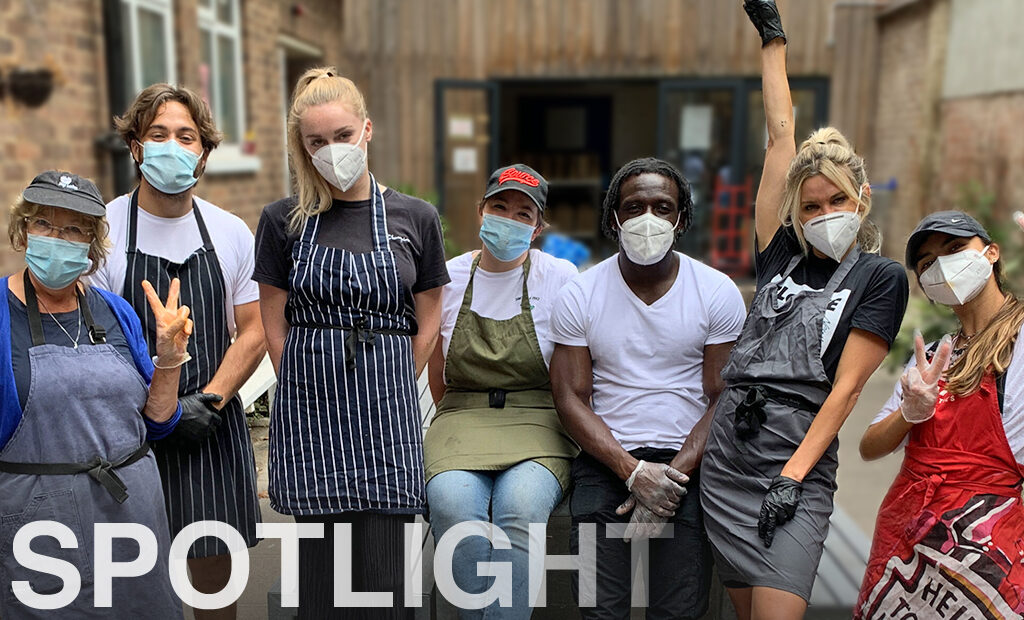
With the aim of promoting a food industry that is sustainable and diverse, The Upcoming has launched a new Spotlight series, a monthly feature to give space to people, often unsung, who are changing things for hospitality.
Lauren Everet is head chef at Soup Kitchen London – a non-profit organisation that addresses the homeless crisis in London by providing food, clothing and mental health support. In her prominent role she has helped create a haven for vulnerable people, even adapting the entire set-up to enable a continuation through the global pandemic. Everet oversees the culinary service with a team of volunteers at their charity enterprise in Tottenham Court Road. We spoke to the young chef about her journey to this project and the impact of Covid-19, as well as the importance of providing good food to all regardless of circumstance.
Thanks for taking the time to speak to us. Can you tell us about Soup Kitchen London, how it started and what it stands for?
Soup Kitchen London is an organisation that’s been running since 1986. We feed and clothe vulnerable and homeless people irrespective of their background – no judgement or anything like that – and I’m responsible for providing the food.
When did you join the project?
About a year and a half ago in January 2020.
You worked in some of London’s best and most exclusive restaurants like Core by Clare Smith and the Clove Club. What prompted you to change direction in your life?
I interned in those restaurants and before that I worked as a private chef on super-yachts. My training there was to expand my repertoire; they were incredible experiences. Once I quit yachting, I worked in a house here in London – again for high net worth individuals – and I sort of felt that I wanted to do something a bit more meaningful. So I volunteered a few times at the soup kitchen and they had an opening for a chef while I was between jobs. The rest is history!
Would you go back to fine dining?
No, definitely not.
One of the world’s most famous soup kitchens, Massimo Bottura’s Food for Soul, is present in London with Refettorio Felix at St Cuthbert’s. Did you ever work with them?
No, I’ve never worked there but I do have his book and I was very inspired by the idea of using high-quality products to serve food to people who would not normally be able to access that. I think it’s very important to me, regardless of their income, class or background. I really like the idea that they serve a three-course meal and I’ve definitely taken a leaf out of their book and am inspired by what he’s inspired throughout the world.
Photos: Anna Cornish
Should the restaurant industry work closer with soup kitchens?
I think the restaurant industry is having a tough time as it is, so it’s hard to say what people should be doing, but we do get people offering to help and sending over surplus ingredients through partner charities.
What kind of training have you done as a chef?
I studied at the International Culinary Center in New York. I did a class culinary arts programme there, then lots of learning on the job and self-taught. I did three months studying sushi in Japan and courses “here and there” whenever I had time off the boats: pastry, chocolate work… those were my kind of formal periods of education.
In the restaurant industry we know female chefs are a minority; is it different in the world of soup kitchens?
This is the only soup kitchen I’ve worked in so I don’t know if I can answer that question, but I do know that I am one of a few females who have worked in the kitchen there.
What do you think is the most important the government should do to support women and equality in this sector?
Personally, I think it comes down to education. I believe a lot can be linked to changing people’s views from a very young age. Instilling a greater respect, teaching that everyone is equal irrespective of race, gender or anything. I think we are all responsible for helping each other to be better people. It’s not just down to one particular person or organisation or the government. We all need to step up!
Michelin has just announced two new three-Michelin-starred restaurants (Hélène Darroze at The Connaught and Core by Clare Smith) – both lead by women. What was your reaction?
Yes! I think it’s amazing but it’s sad that we have to celebrate the fact that women are getting stars because they’re incredible chefs irrespective of their gender. I think it’s incredible though and it’s about time: it shouldn’t have taken this long.
We are in the middle of a global pandemic, which had a devastating impact on the hospitality industry. What kind of impact did it have on your job and the lives of the homeless?
We saw an increase in numbers almost immediately; we went from serving about 80-100 people a day to… I think 165 was actually our highest number. We weren’t prepared for it and we also had to change the way we served and set up a take-away system overnight so we could enforce social distancing. We lost a lot of volunteers because people were staying at home to follow the guidelines. So we went from a large team to a small team with more people to serve and fewer resources. It was a bit hectic to begin with, but we’ve ironed all those issues out now.
Can you tell us the three highlights from your career as a chef? Perhaps a reaction from someone you cooked for, or a compliment from a chef that was particularly important to you?
I’ve always had such great guests and I think being called out and being given a round of applause is really, really lovely and thoughtful of your guests. I won a chef competition in 2018 and that showed me more than anyone else that I was doing a good job. And some of our guests always pass on their thanks, they say that they can see the food is made with love, prepared with love and served with love and that’s always stuck with me and been the best. If I can try and make a difference to someone who’s having a hard day also means the most to me.
Finally, where do you see yourself in the future?
Definitely working in charity in the third sector. I am hoping to move into fundraising to try and get involved in some meaningful impact behind the scenes. Seeing first-hand what people need I guess gives me a good standing to be able to help more going forward. Being in a position to offer food security where food banks and soup kitchens aren’t needed anymore is really important to me. Everyone should have access to good food across the board. I’m really passionate about that so that’s my mission.
Ezelle Alblas
For further information visit the Soup Kitchen London wesbite here.


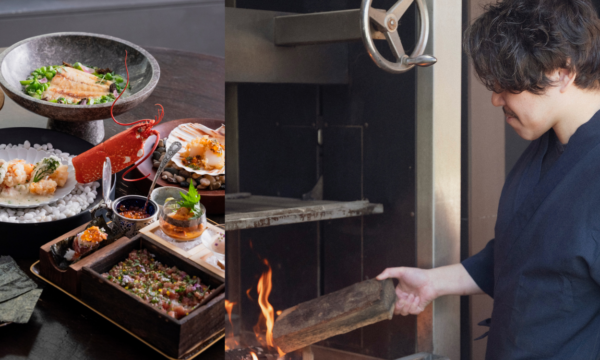
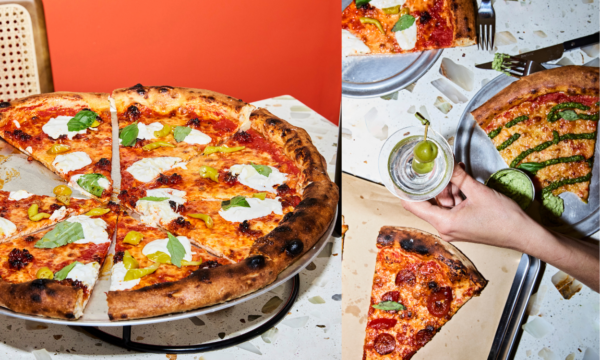
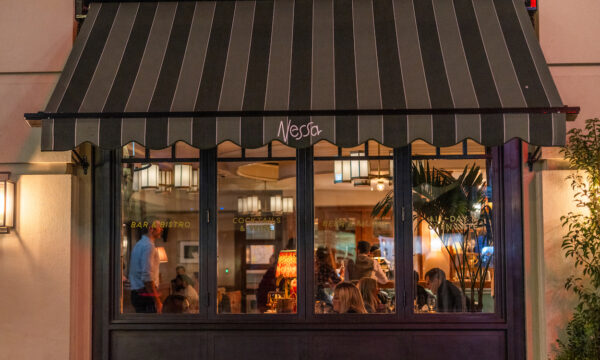

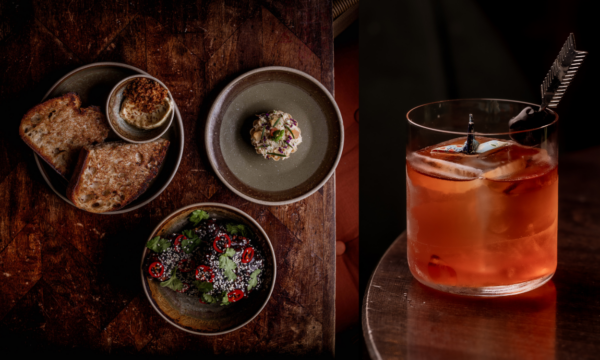

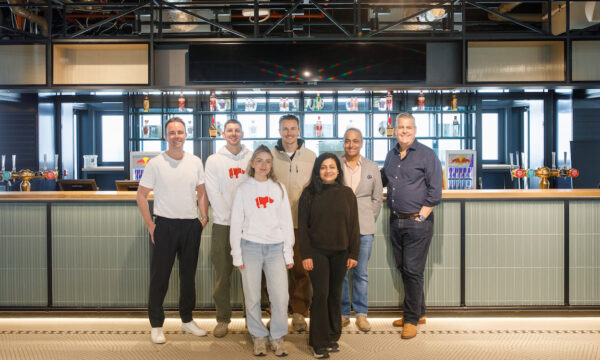
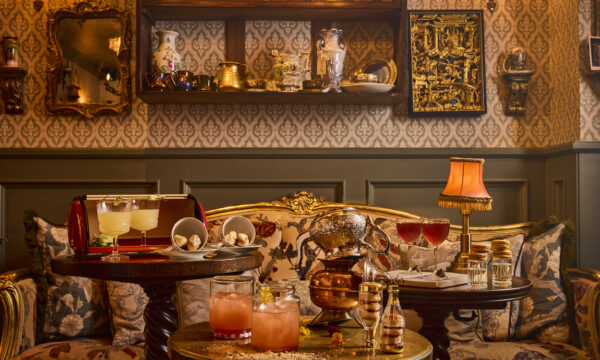













Facebook
Twitter
Instagram
YouTube
RSS